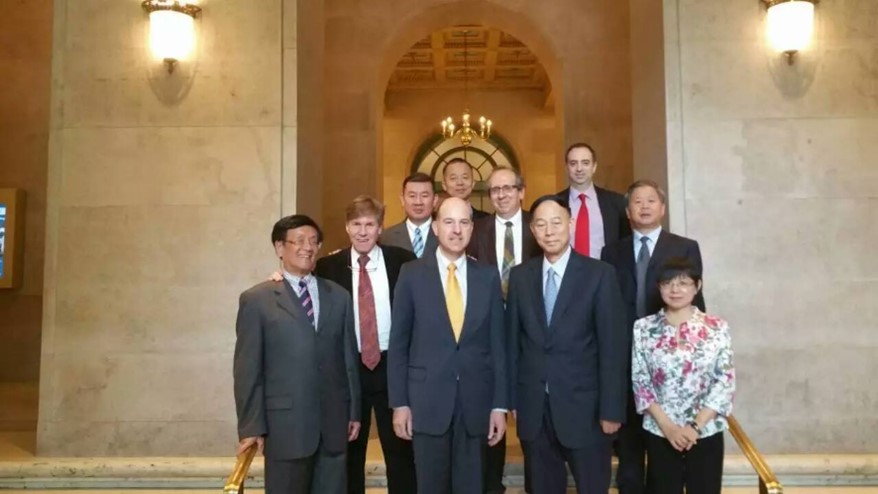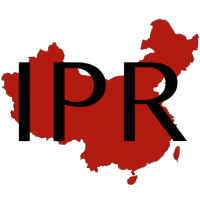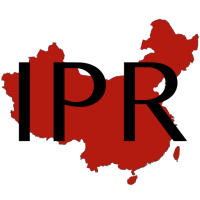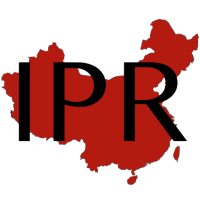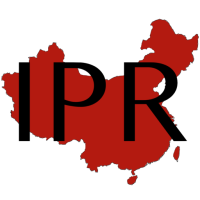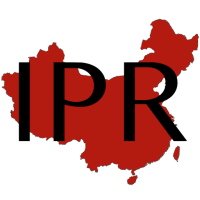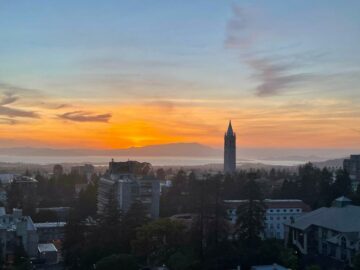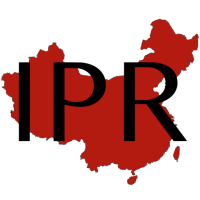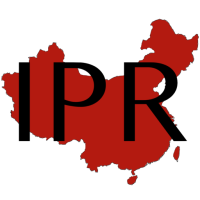I was on spring break holiday this past week when I heard the tragic news that Prof. Liu Chuntian of Renmin University’s IP faculty, had passed away while visiting Los Angeles.
Prof. Liu was an opinionated, gracious, brave, and deep supporter of intellectual property rights protection in China. Over the two-plus decades of our friendship, we participated together in countless conferences, dialogues, speeches, meals, and organizations. He launched a Berkeley-Renmin University annual conference on IP developments which was the predecessor to my own efforts here at UC Berkeley. He arranged for me to join his university as a guest professor. He hosted US experts on my recommendation as Fulbright scholars. He encouraged me to write articles that he thought would be helpful to a Chinese audience. We also worked together on a pivotal conference on IP courts in 2012, with over 200 Chinese judges in attendance.
Prof. Liu, like me, saw China’s IP development as inextricably linked to China’s IP and economic reforms. He advocated for greater transparency of the courts and greater protection of private property rights. We debated and often worked together on copyright protection for the live streaming of sports broadcasting, protection of naming rights for Michael Jordan, pharmaceutical patent linkage, specialized IP courts, improving criminal enforcement by the courts, reform to trade secret laws, increased judicial transparency, improving freedom of contract for technology licenses, and many, many other issues.
He was a co-founder with me of the US-China IP Dialogue, administered by the US Chamber of Commerce. After I first left the government in 2008, I realized there was a need for informed dialogue on US-China IP issues. I attempted to create an official dialogue while in the US government, which became known as the US-China IP Working Group. The original purpose of that group was for experts to discuss IP issues in order to promote mutual understanding of our respective positions. However, it also rapidly became another effort to advance politicized concerns. We both agreed that was a need for a “Track 2” (non-governmental) dialogue. We approached the US Chamber of Commerce to support such an effect, and they agreed to sponsor it
The photographs of our dialogue meetings show how we came to trust and believe in each other over these many years of the dialogue’s existence. In our earliest meetings, the US and Chinese sides were photographed standing solemnly apart. In later pictures, we intermingled with each other. The top picture is one from those later years (http://www.bipi.org/index.php/6/405.html). Here are some other articles with photographs: http://ipr.ruc.edu.cn/info/1048/1148.htm; https://www.sohu.com/a/130976945_221481; http://ipr.ruc.edu.cn/info/1048/1189.htm; http://ipr.ruc.edu.cn/info/1048/1189.htm; https://legal-theory.org/?mod=info&act=view&id=22138; http://ipr.ruc.edu.cn/info/1050/1209.htm; China as an IP Stakeholder – China IPR – Intellectual Property Developments in China.
One of my fondest memories with Prof. Liu was the joint judicial conference we held at Renmin University, with the USPTO, the Federal Circuit Bar Association, and the Supreme People’s Court. I was asked at the last minute to participate as a keynote speaker before that audience of over 1,000 people. Rather than repeat the encomiums of the speakers who came before me, I decided to reflect upon the protection of private property and the role of IP, which was also a favorite topic of Prof. Liu. “Today”, I said in Chinese, “it is not like imperial China.” I quoted the Classic of Odes [诗经, 1100-700 B.C.E.] “China today is not an environment where ‘all the land under heaven is the king’s land’ [普天之下,莫非王土]. Today, we have private property rights, and we have intangible intellectual property rights.” I received a boisterous round of applause, including from the deputy chief of the Political Legal Committee, who delivered the real keynote to the event.
Prof. Liu and I often enjoyed exchanging our observations on ancient Chinese culture, which I would often compare to Jewish traditions. After the keynote, Prof. Liu gave me a decade-long homework assignment. “Whenever you give a speech in the future”, he told me, “you must open it with some Chinese poetry.” Over the years, I remember quoting from such writers as Lao Zi, Zhuang Zi, Meng Zi, Confucius, Wang Wei, Du Fu, Lu Xun, and books such as The Romance of the Three Kingdoms, at conferences we attended throughout the world.
I thank Prof. Liu for that homework assignment, and for the many joyful years that we had together.
In closing, I have one final quote for Prof. Liu, which I am sorry that we can never discuss together in person. There is a saying in the Talmud (c. 350-500 C.E.) that “when a scholar dies, everyone is a relative.”
My condolences to his wife and family, as well as the many students, colleagues, and friends who I know grieve his passing along with me. May his memory be a blessing.
.
- SEO Powered Content & PR Distribution. Get Amplified Today.
- Platoblockchain. Web3 Metaverse Intelligence. Knowledge Amplified. Access Here.
- Source: https://chinaipr.com/2023/04/04/all-the-land-under-heaven-is-the-kings-land-in-memory-of-prof-liu-chuntian/
- :is
- 000
- 1
- 2012
- a
- administered
- advance
- After
- Ancient
- and
- Angeles
- annual
- Another
- apart
- Applause
- ARE
- arranged
- articles
- AS
- Association
- At
- attempted
- attendance
- audience
- bar
- BE
- before
- believe
- Berkeley
- blessing
- Books
- brave
- Break
- Broadcasting
- by
- CAN
- Chamber
- chief
- China
- Chinas
- chinese
- classic
- closing
- Co-founder
- colleagues
- Commerce
- committee
- compare
- Concerns
- Conference
- conferences
- contract
- copyright
- Court
- Courts
- create
- Criminal
- Culture
- decades
- decided
- deep
- delivered
- deputy
- Development
- developments
- dialogue
- discuss
- e
- each
- Economic
- effect
- effort
- efforts
- encouraged
- enforcement
- Environment
- Event
- everyone
- exchanging
- experts
- family
- Favorite
- Federal
- Files
- final
- First
- For
- Freedom
- friends
- Friendship
- from
- Give
- Government
- gracious
- greater
- Group
- Guest
- Have
- heard
- Held
- helpful
- here
- Holiday
- homework
- hosted
- How
- However
- HTML
- http
- HTTPS
- i
- Imperial
- improving
- in
- Including
- increased
- informed
- intellectual
- intellectual property
- IP
- issues
- IT
- join
- joint
- Jordan
- jpg
- Keynote
- Keynote Speaker
- Know
- known
- Land
- Last
- launched
- Laws
- Legal
- licenses
- like
- linked
- live
- los
- Los Angeles
- many
- max-width
- meals
- meetings
- Memories
- Memory
- Michael
- minute
- mutual
- naming
- Naming Rights
- Need
- news
- of
- official
- on
- ONE
- open
- Opinionated
- order
- organizations
- original
- original purpose
- Other
- own
- participate
- participated
- passed
- Passing
- past
- patent
- People
- people’s
- person
- Pharmaceutical
- photographs
- picture
- Pictures
- pivotal
- plato
- Plato Data Intelligence
- PlatoData
- Poetry
- political
- positions
- predecessor
- private
- Professor
- promote
- property
- Property Rights
- protection
- purpose
- rapidly
- rather
- realized
- received
- Recommendation
- reflect
- reform
- remember
- repeat
- respective
- rights
- Role
- round
- Said
- Scholars
- Secret
- show
- Sides
- some
- Speaker
- speakers
- specialized
- speech
- speeches
- sponsor
- Sports
- spring
- stakeholder
- streaming
- Students
- such
- support
- supporter
- Supreme
- Technology
- that
- The
- the joint
- the world
- These
- thought
- three
- throughout
- to
- today
- together
- top
- topic
- trade
- trade secret
- Transparency
- Trust
- under
- understanding
- university
- us
- us government
- USPTO
- week
- WELL
- which
- while
- WHO
- wife
- with
- WordPress
- worked
- working
- Working Group
- world
- would
- write
- years
- zephyrnet

